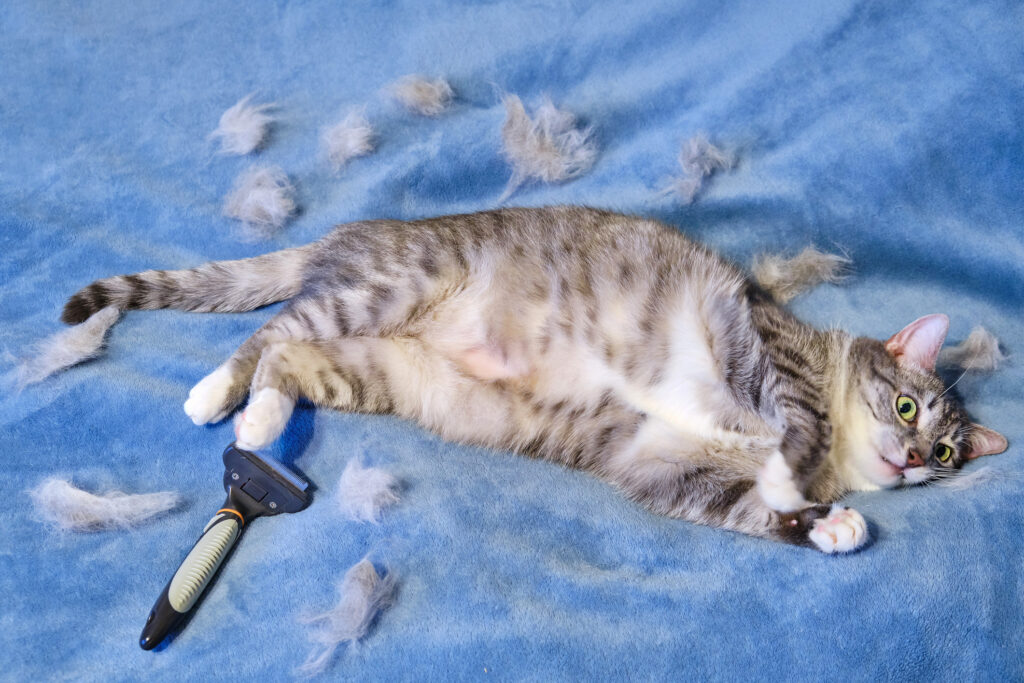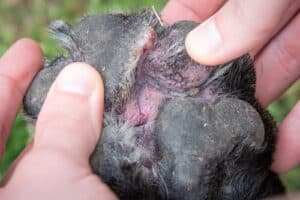Understanding Cat Hair Loss: A Closer Look
Cats are known for their luxurious coats, so it can be concerning when you notice your feline friend losing hair. While shedding is a natural process for cats, excessive hair loss can indicate an underlying issue that requires attention. In this article, we’ll delve into the various reasons why your cat might be experiencing hair loss and when it’s time to seek professional help.
Normal Shedding vs. Excessive Hair Loss
Before jumping to conclusions, it’s essential to differentiate between normal shedding and problematic hair loss. Cats typically shed their fur as a way to replace old or damaged hair with new growth. However, if you notice bald patches, thinning areas, or more hair than usual on your furniture or clothing, it’s time to investigate further.

Parasites: Fleas and Mites
Parasites like fleas and mites are common culprits behind cat hair loss. These tiny pests can irritate your cat’s skin, causing them to scratch excessively and leading to hair loss. Regular flea prevention measures are crucial to protect your cat from infestations and the subsequent discomfort they bring.
Allergies and Sensitivities
Cats, like humans, can develop allergies to certain foods, environmental factors, or even grooming products. Allergic reactions can result in itching, inflammation, and hair loss. Identifying and eliminating the allergen is key to preventing further hair loss and discomfort for your cat.
Skin Infections
Bacterial or fungal skin infections can lead to hair loss in cats. If you notice redness, scaly patches, or foul odors coming from your cat’s skin, it’s crucial to consult a veterinarian. These infections can worsen if left untreated, leading to more serious health issues.
Stress and Anxiety
Believe it or not, cats can experience stress and anxiety that manifest in physical ways, including hair loss. Changes in the household, new additions (like other pets), or even a shift in routine can trigger stress in your feline friend. Providing a calm and enriched environment can help alleviate stress-related hair loss.
Hormonal Imbalances
Hormonal imbalances, such as hyperthyroidism or Cushing’s disease, can lead to hair loss in cats. These conditions disrupt the normal functioning of your cat’s body and can have various effects, including changes in their coat quality and quantity.
Poor Nutrition
A balanced diet is crucial for maintaining healthy skin and coat in cats. Inadequate nutrition can lead to brittle, dry fur and increased shedding. Consult with your veterinarian to ensure your cat is getting the right nutrients for optimal coat health.
Underlying Medical Conditions
Hair loss can sometimes be an early indicator of underlying medical conditions, such as kidney disease or diabetes. If your cat is experiencing hair loss along with other unusual symptoms like increased thirst or weight loss, it’s important to have them evaluated by a veterinarian.
Overgrooming
Cats are meticulous groomers, but excessive grooming, also known as psychogenic alopecia, can lead to hair loss. This behavior is often linked to stress, boredom, or underlying medical issues and requires a veterinarian’s attention.
Age and Genetics
Just like humans, cats’ bodies change as they age. Some older cats naturally experience hair thinning due to a decrease in hair follicle activity. Additionally, certain breeds are genetically predisposed to hair loss patterns.
When to Seek Veterinary Care
If you’ve noticed any unusual patterns of hair loss in your cat, it’s best to schedule an appointment with a veterinarian. Attempting to self-diagnose or treat your cat’s condition at home can worsen the issue. At Arrowhead Animal Hospital, we have the expertise to diagnose the underlying cause of your cat’s hair loss and provide appropriate treatment options.
When you have concerns about your cat’s hair loss or any other health-related issues, don’t hesitate to reach out to us at (303) 469-1616. Our compassionate team is dedicated to ensuring the well-being of your beloved feline companion.




